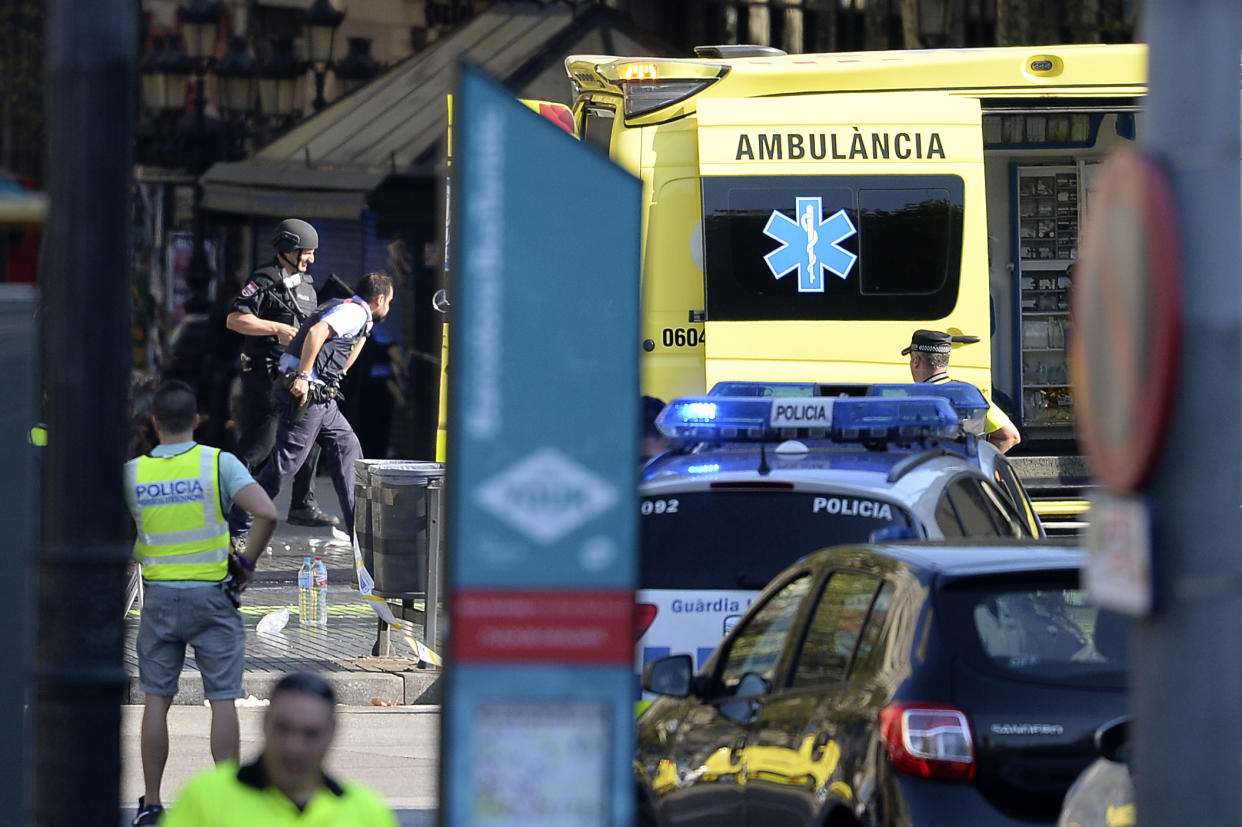How Travelers Can Prepare for a Terrorist Attack

In the wake of the terrorist attack in Barcelona - in addition to the frequent tragedies in the Middle East - travelers are exercising caution, and with good reason. But should you continue to travel (and you should continue to travel), you need to be prepared.
We spoke with Patricia Aguilera, State Department Division Chief for Europe and Eurasia about what travelers should do if they find themselves in a terrifying situation. Below, her tips.
Before your trip
Do your research.
Your preparation should start before you leave home. "Unfortunately, terror attacks are unpredictable and it makes it impossible to protect yourself absolutely, so the most important thing is before you go is read up on your destination. We tell everybody to go to travel.state.gov to learn about the situation on the ground."
Is there a travel warning or a travel alert? If there is one, the State Department asks that you reconsider if that travel is important. "We tell our people to really seriously reconsider going, and if they don't need to, not to."
Plan your trip with safety in mind.
When organizing your itinerary, consider safety. Avoid stops in high risk areas or airports. Try to stay away from large crowds. Consider when you visit tourist destinations.
"Terrorists are trying to make the greatest impact," explains Aguilera. "If you can avoid certain destinations or large crowds, it limits your vulnerability. Terrorist attacks are the result of careful planning. You want to stay away from the political gatherings, and any rallies that could erupt into violence. Stay at a hotels with identifiable security measures in place. Consider traveling when it's not a peak time - pick a time when it is less congested, less busy."
Enroll in STEP, the State Department's Smart Traveler Enrollment Program.
Through the program, you'll receive travel and security updates about the destination in which you're registered. Should there be any demonstrations or security situations that you should be aware of, it will keep you updated. You can sign up at step.state.gov.
Purchase insurance.
Travel insurance is a good idea regardless of where you're going, but should you find yourself in a bad situation, it can be life-changing. Certain types of insurance will help pay for medical care, evacuation, or unexpected flights.
"We don't advocate or lobby for any specific insurance," said Aguilera. "But we ask people to read the fine print. It's important because different insurance companies will cover different things, but usually for just a few dollars, it really makes a huge difference, if you're badly injured. And we recommend this not just for terrorist attacks, but for any kind of trip because you never know what could happen, and it's just a good thing to have. Better to be safe than sorry."
During the attack.
Should you find yourself in immediate danger during a terrorist attack, follow the suggested protocol set forward by the British National Counter Terrorism Security Office (NaCTSO). To summarize: Stay calm, and run. If you can't run, hide. And once you are safe, notify the proper authorities immediately. Read their full instructions, here.
After the attack.
Contact your local embassy, but only if you're injured or in need of emergency assistance.
Have the local embassy's phone number on you in case of an emergency, or call 888-407-4747, which is manned 24 hours a day, 7 days a week by the U.S. State Department. They will likely set up a specific email address for the crisis, so look for that as well. That being said, only do so if you are injured or it is an emergency.
"Usually when we have a terror attack or ISIS hits, we ask people that are injured to contact us," said Aguilera. "During [last year's attack in Paris], there was a very important lesson that was learned. We asked the media to disseminate a message, and they, I think in trying to disseminate it quickly, left out a key part of it, and it was 'if you are an injured U.S. citizen.' They just put if you are a U.S. citizen, please contact the embassy. We were inundated with calls, which meant that it was harder for us to triage and to find out people who were truly missing or injured or really needed our assistance. So we discourage people who are okay to call us, because we won't have any further action."
Let your loved ones know you're okay.
This is the most important thing, according to Aguilera. Many of the calls or emails that we receive are from people that are worried about a loved one because they haven't heard from them, and they knew that they were either transiting or they were in the city and aren't too sure about specifics," she said. So let your friends and family know that you are safe. Facebook's Safety Check feature is useful if you can't make a phone call.
Leave your family or friends with a detailed itinerary. "A lot of our calls for Brussels and certainly for the Istanbul attack were people who weren't sure about their loved ones, whether they were already in transit or when they were leaving. If people could just give loved ones specific information, it's incredibly helpful before they leave. And a good contact in addition to whatever cell phone you may have, to maybe your hotel or a friend or whomever you're staying with." Again, this allows the embassy to focus their efforts on the people who truly need their help.
Tune in to the local news.
"Watch local media and heed any kinds of warnings or anything that they recommend for people staying near the vicinity or in the city. Security is the most important thing, and we want you to be safe."
For more information on travel safety, visit travel.state.gov.
You Might Also Like


